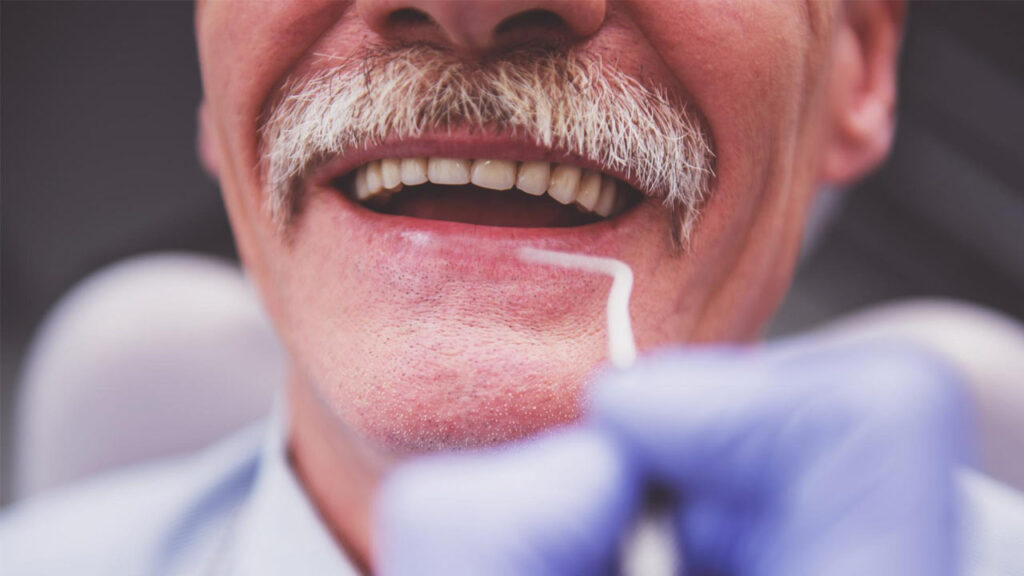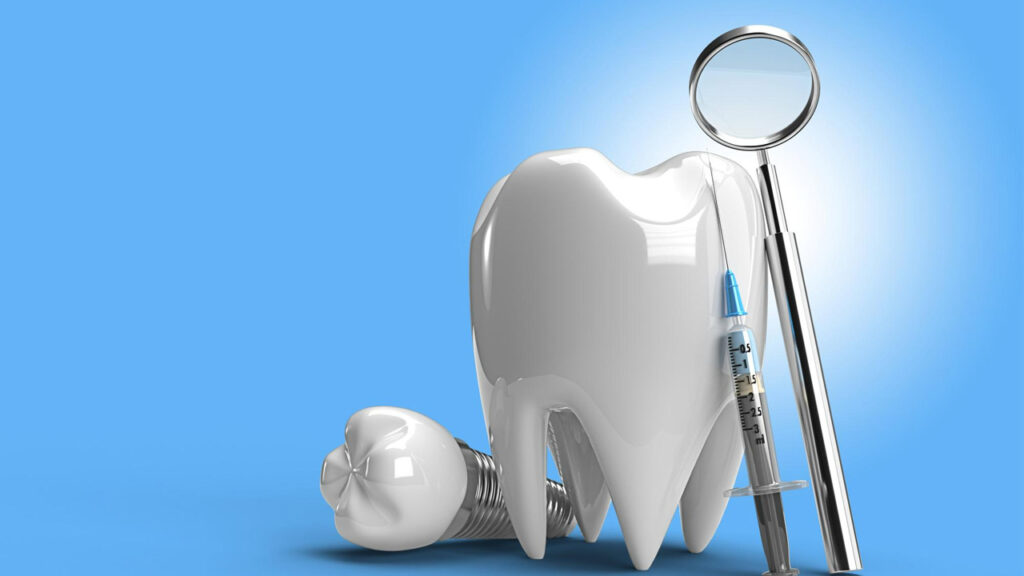Tooth decay is one of the most common dental problems that affects millions of people around the world. It occurs when bacteria in the mouth produce acids that erode the enamel, the hard outer layer of the tooth. This can lead to cavities, pain, infection, and tooth loss. But can a tooth repair itself? Is there a way to reverse tooth decay naturally? In this article, you will learn:
- How does a tooth repair itself?
- What are the factors that affect tooth repair?
- What are the natural ways to prevent and reverse tooth decay?
- What are the dental treatments for tooth decay?
- How to care for your teeth and gums?

How Does a Tooth Repair Itself?
The answer to the question “can a tooth repair itself?” depends on the extent and location of the damage. Teeth have some ability to heal themselves, but not completely. The enamel, which covers the crown of the tooth, is the hardest substance in the human body, but it does not have any living cells or blood vessels.
Therefore, it cannot regenerate or repair itself once it is damaged by decay or trauma. However, the dentin, which lies under the enamel and forms the bulk of the tooth, is a living tissue that can produce new cells and mineralize itself. Therefore, it can repair itself to some extent if it is exposed to decay or injury.
The process of tooth repair involves two mechanisms: remineralization and dentinogenesis. Remineralization is the natural process of restoring minerals to the enamel and dentin that have been lost due to acid erosion. This can happen when saliva, which contains calcium and phosphate ions, neutralizes the acids and deposits minerals back into the tooth surface.
Dentinogenesis is the process of forming new dentin by specialized cells called odontoblasts. This can happen when dentin is exposed to stimuli such as bacteria, inflammation, or injury. The odontoblasts secrete a matrix of collagen and other proteins that mineralize and form a protective layer of dentin called tertiary dentin.
What are the Factors that Affect Tooth Repair?
The ability of a tooth to repair itself depends on several factors, such as:
The severity and depth of the damage:
The more severe and deep the damage is, the less likely it is for a tooth to repair itself. For example, a small surface cavity may be repaired by remineralization, but a large cavity that reaches the pulp (the innermost part of the tooth that contains nerves and blood vessels) may require a root canal treatment or extraction.
The location of the damage:
The location of the damage also affects the chances of tooth repair. For example, damage on the chewing surface of a molar may be more difficult to repair than damage on the side of an incisor.
The age of the person:
The age of the person also influences the ability of a tooth to repair itself. Younger people have more active odontoblasts and more potential for dentinogenesis than older people. Therefore, they may be able to heal their teeth faster and better than older people.
The oral environment:
The oral environment also plays a role in tooth repair. Factors such as saliva flow, pH level, diet, oral hygiene, and fluoride exposure can affect remineralization and dentinogenesis. For example, having adequate saliva flow can help neutralize acids and provide minerals for remineralization.
Having a balanced diet that is low in sugar and high in calcium can also help prevent and reverse tooth decay. Brushing and flossing regularly can help remove plaque and bacteria that cause decay. Using fluoride products can help strengthen enamel and dentin and prevent demineralization.
What are the Natural Ways to Prevent and Reverse Tooth Decay?
While teeth have some capacity to repair themselves, it is better to prevent tooth decay in the first place or treat it early before it becomes worse. There are some natural ways to prevent and reverse tooth decay, such as:
Eating healthy foods:
Eating healthy foods that are rich in vitamins, minerals, antioxidants, and fiber can help nourish your teeth and gums and boost your immune system. Some examples are fruits, vegetables, nuts, seeds, cheese, yogurt, eggs, fish, and lean meat. Avoid foods that are high in sugar, starch, or acid, as they can feed bacteria and erode your enamel. Some examples are candy, soda, juice, bread, pasta, and chips. These foods can also stick to your teeth and create plaque and tartar.
Drinking plenty of water:
Drinking plenty of water can help rinse your mouth and remove food particles and bacteria that can cause decay. It can also help balance the pH level of your mouth and prevent acid erosion. Water can also keep you hydrated and prevent dry mouth, which can increase the risk of decay.
Chewing sugar-free gum:
Chewing sugar-free gum can help stimulate saliva production and increase remineralization. It can also help clean your teeth and gums and remove plaque and bacteria. However, do not chew gum for more than 20 minutes at a time, as it can cause jaw problems or tooth wear.
Using natural remedies:
Using natural remedies such as baking soda, coconut oil, apple cider vinegar, or tea tree oil can help prevent and reverse tooth decay by killing bacteria, neutralizing acids, or whitening teeth. However, use them with caution and moderation, as they can also have side effects or interactions with other medications or substances. Consult your dentist before using any natural remedies for your teeth.
What are the Dental Treatments for Tooth Decay?
If natural ways are not enough to prevent or reverse tooth decay, you may need to seek dental treatments to restore your tooth and prevent further complications. There are different types of dental treatments for tooth decay, depending on the severity and location of the damage. Some of the most common dental treatments are:
- Fillings: Fillings are the most common dental treatment for tooth decay. They involve removing the decayed part of the tooth and filling it with a material such as composite resin, amalgam, gold, or porcelain. Fillings can restore the shape, function, and appearance of the tooth and prevent further decay.
- Crowns: Crowns are dental restorations that cover the entire visible part of the tooth. They are used when the tooth is severely damaged or weakened by decay or trauma. Crowns can be made of metal, porcelain, or ceramic. Crowns can protect the tooth from further damage and improve its strength and appearance.
- Root canal treatment: Root canal treatment is a dental procedure that involves removing the infected pulp (the innermost part of the tooth that contains nerves and blood vessels) and sealing the root canal (the space inside the root of the tooth). Root canal treatment is used when the decay has reached the pulp and caused pain, inflammation, or infection. Root canal treatment can save the tooth from extraction and prevent the spread of infection to other parts of the body.
- Extraction: Extraction is the removal of the entire tooth from its socket in the jawbone. Extraction is used when the tooth is beyond repair or poses a threat to your overall health. Extraction can relieve pain and infection, but it can also cause problems such as bone loss, tooth shifting, or difficulty chewing. Therefore, extraction should be considered as a last resort for tooth decay.
How to Care for Your Teeth and Gums?
To prevent or reverse tooth decay, you need to care for your teeth and gums properly and regularly. Here are some tips on how to care for your teeth and gums:
- Brush your teeth twice a day with a soft-bristled toothbrush and fluoride toothpaste. Brush for at least two minutes each time and use gentle circular motions. Brush all surfaces of your teeth, including the front, back, and chewing surfaces. Also brush your tongue to remove bacteria and freshen your breath.
- Floss your teeth once a day with dental floss or an interdental cleaner. Floss between each tooth and under the gum line to remove plaque and food debris that brushing may miss. Be gentle and avoid snapping or cutting your gums with the floss.
- Rinse your mouth with water or mouthwash after each meal or snack to wash away any food particles or acids that may linger on your teeth. You can also use a fluoride mouthwash to strengthen your enamel and prevent decay.
- Visit your dentist regularly for check-ups and professional cleaning. Your dentist can examine your teeth and gums for any signs of decay or disease and provide appropriate treatment if needed. Your dentist can also clean your teeth thoroughly with special tools to remove plaque and tartar that you cannot remove at home.
- Avoid smoking or chewing tobacco, as they can stain your teeth, damage your gums, and increase your risk of oral cancer. They can also reduce saliva flow and impair healing.
- Limit your intake of sugary or acidic foods and drinks, as they can feed bacteria and erode your enamel. If you do consume them, rinse your mouth with water afterwards or chew sugar-free gum to neutralize acids.
- Eat a balanced diet that is rich in calcium, phosphorus, vitamin C, vitamin D, and other nutrients that are essential for healthy teeth and gums. Some examples are milk, cheese, yogurt, eggs, fish, meat, leafy greens, citrus fruits, nuts, seeds, etc.
Tooth decay is a common dental problem that can cause pain, infection, and tooth loss if left untreated. However, teeth have some ability to repair themselves, depending on the extent and location of the damage. The enamel, which covers the crown of the tooth, cannot repair itself, but the dentin, which lies under the enamel and forms the bulk of the tooth, can repair itself to some extent.
The process of tooth repair involves remineralization and dentinogenesis, which are influenced by several factors, such as the severity and depth of the damage, the location of the damage, the age of the person, and the oral environment. There are also some natural ways to prevent and reverse tooth decay, such as eating healthy foods, drinking plenty of water, chewing sugar-free gum, and using natural remedies.
However, if natural ways are not enough to prevent or reverse tooth decay, you may need to seek dental treatments to restore your tooth and prevent further complications. There are different types of dental treatments for tooth decay, such as fillings, crowns, root canal treatment, or extraction.
To prevent or reverse tooth decay, you also need to care for your teeth and gums properly and regularly by brushing, flossing, rinsing, visiting your dentist, avoiding smoking or chewing tobacco, limiting your intake of sugary or acidic foods and drinks, and eating a balanced diet.

